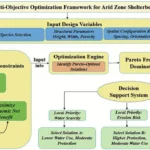Key Points
- China’s government warns electric vehicle (EV) makers against engaging in excessive “price war” competition.
- BYD’s major discounts triggered the latest wave of market-wide markdowns.
- Export prices and domestic EV prices have declined significantly amid oversupply.
- Tech-focused players like Xpeng and Xiaomi aim to survive by innovating, not discounting.
China’s rapidly growing electric vehicle (EV) market is facing escalating tensions as aggressive price wars raise alarm among regulators and industry leaders. The Chinese government is now urging EV manufacturers to curb “involution” — a term describing destructive, excessive competition — and restore market stability.
Chinese Premier Li Qiang mentioned involution in his March work report, and the national market regulator has recently pushed for a crackdown on unfair pricing practices. Following that, senior executives from top electric vehicle (EV) firms were summoned to Beijing to promote self-regulation.
The latest price-cutting wave began on May 23, led by industry giant BYD, which slashed prices by over 30% on some models. The China Association of Automobile Manufacturers (CAAM) criticized the move, warning that disorderly price wars could harm profit margins and consumer safety. “Price wars have no winners,” warned the People’s Daily, echoing sentiments from the Ministry of Industry and Information Technology, which vowed to enforce laws promoting fair competition.
However, analysts suggest that such competition is far from over. Despite commanding nearly 30% of the market, BYD is under pressure from both legacy carmakers and startups. Nomura analysts noted that this is only the beginning, with the fiercest phase of competition yet to come unless the market consolidates.
Prices of exported Chinese EVs are also declining. Exports to Germany have dropped to $21,000 per car in 2024, down from $30,000 in 2023. In China, retail prices have fallen by 19% over the past two years to around 165,000 yuan (~$22,900).
The oversupply has even led to zero-mileage used cars being sold, as manufacturers register them as “sold” but reroute them to secondhand markets. This inflates sales numbers and reflects deep inefficiencies.
EV startups like Xpeng are shifting focus toward technology rather than price. CEO He Xiaopeng said the current state is “just an appetizer,” predicting tougher competition. Meanwhile, Xiaomi expects its EV division to turn a profit in the second half of 2025, defying losses seen by competitors like Nio.




